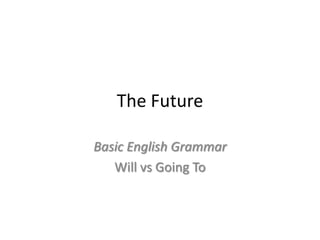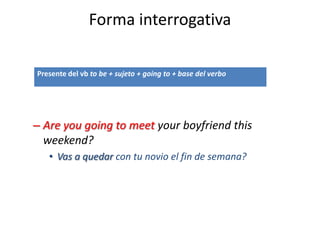Este documento describe las diferencias entre el uso del futuro simple y "be going to" en inglés. El futuro simple se usa para decisiones repentinas, predicciones y ofrecer ayuda, mientras que "be going to" se usa para planes e intenciones próximas, eventos inminentes y resultados seguros. Luego explica las formas afirmativa, negativa e interrogativa de ambas construcciones del futuro.










